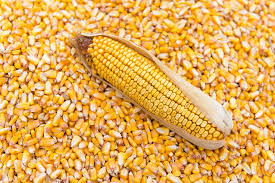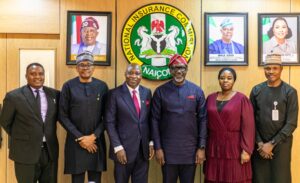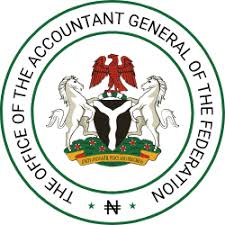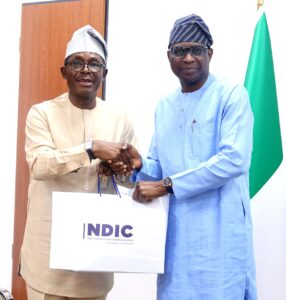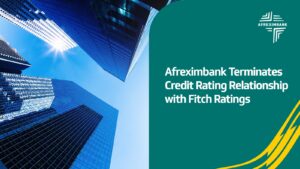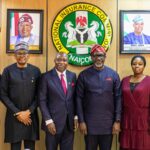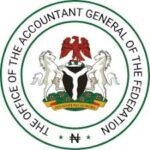By Olayemi Cardoso, Governor, Central Bank of Nigeria
In his inaugural address, the President conveyed the urgent need to “clean up” the CBN and its Monetary Policies. As a first step to this task, Mr. President’s appointment of a special investigator into the affairs of the CBN is currently underway. Further to the clean-up exercise, the President deemed it necessary to bring in new leadership to the helm of affairs at the Central Bank.
I shall outline the challenges facing the Central Bank, introduce high-level proposals to address reformation challenges and discuss the role of a refocused Central Bank in supporting the economic agenda of the President Tinubu Administration.
What are the current challenges facing the Central Bank of Nigeria?
In assessing challenges currently facing the Central Bank of Nigeria, preliminary questions are being raised on addressing these challenges.
- Failure in corporate governance in CBN:
- How will issues of governance be addressed?
- Diminished institutional autonomy:
- How can public and financial systems’ stakeholder confidence be restored in the autonomy and integrity of CBN?
- Need to refocus CBN back to core functions:
- What needs to be in place to revert to evidence-based Monetary policies?
- Discontinuation of unorthodox Monetary policies and Foreign Currency management?
- Unorthodox use of Ways and Means spending:
- What controls can CBN develop to enforce statutory limits in the use of Ways and Means of financing public sector deficit?
- Backlog of FX demand:
- How much of the backlog is real versus speculative/ hoarding?
- Are there creative financing options for clearing the short to medium term backlog?
- Lack of clarity in fiscal and monetary relationships – where are the delineations, and what should be the limits in CBN’s fiscal side interventions?
- Inflation and price stability:
- What are the causes, and what is CBN’s proposed response to address inflation and price stability issues?
- Access to FX market and FX price discovery:
- What mechanisms exist to address FX rate unification under a willing buyer and willing seller arrangement?
- What should be the role of the Central Bank in the FX market?
- Is there a need for interest rate realignment to money supply, inflation, and market realities?
- Current Financial System Stability:
- What is the current state of the financial system?
- Are CBN surveillance frameworks being updated proactively to track the expanding use of electronic payment systems by Fintech and Telcos?
These problem statements need in-depth review by the new Central Bank leadership team to determine what mechanisms are currently working, what can be tweaked or dispensed with and what new tools need to be introduced.
How a refocused CBN can support economic growth.
Size Matters
The economic policy proposals of the Administration identify a set of fiscal reforms and growth targets that will achieve $1.0 TN GDP within eight years. In reviewing selected BRICS and MINT countries, with large populations and similar developmental characteristics as Nigeria, it is interesting to identify macro-economic indices that point to Nigeria’s economic trajectory, given the faithful implementation of the proposed economic reforms. In economies bigger than $1.0TN, these indicators include moderate inflation, sizable foreign reserves, and the capacity to quickly rebound from a cyclical economic downturn.
| Country | 2022
Population |
2022 GDP
$’TN |
Inflation rate | FX reserves (2023) |
| Brazil | 215 million | $1.9 TN | 4.61% | $320 MM |
| Mexico | 129 million | $1.4 TN | 4.79% | $184 MM |
| Indonesia | 275 million | $1.3 TN | 4.21% | $123 MM |
| Nigeria | 218 million | $0.5 TN | 25.77% | TBD |
Data sources: IMF, World Bank, OECD
Given this, a refocused CBN will better serve the country through monetary policy interventions and advisory roles that sustain implementation of the Administration’s fiscal proposals.
Advisory role of CBN
Much has been made of past CBN forays into development financing, such that the lines between monetary policy and fiscal intervention have blurred. In refocusing the CBN to its core mandate, there is a need to pull the CBN back from direct development finance interventions into more limited advisory roles that support economic growth. These advisory roles could include, for instance:
- Act as a catalystin the propagation of specialised institutions and financial products that support emerging sectors of the economy.
- Facilitate new regulatory frameworks to unlock dormant capitalin land and property holdings.
- Accelerate access to consumer credit and expand financial inclusion to the masses.
- De-risking instrumentationto increase private sector investment in housing, textiles and clothing, food supply chain, healthcare, and educational supplies. These verticals have huge demand patterns, with the potential for high local inputs and value retention, and can be the basis for rapid industrialisation.
- Exercise CBN’s convening powerto bring key multilateral and international stakeholder participation in government and private sector initiatives.
Conclusion
It must be emphasised that CBN does not have a magic wand that can be waved at the current economic challenges. The problems facing the bank are large and complex. However, with focused leadership and sustained reforms, it is expected that over time, the country will see gains open economic spaces, attract new investments, create employment, and give our hardworking and talented compatriots opportunity for a more prosperous future.
Good production costs money and you can support what we do. Please find our details below👇🏾👇🏾👇🏾 Account name: MARKET ONLINE MEDIA Bank: UBA Acc No: 1026401930.








